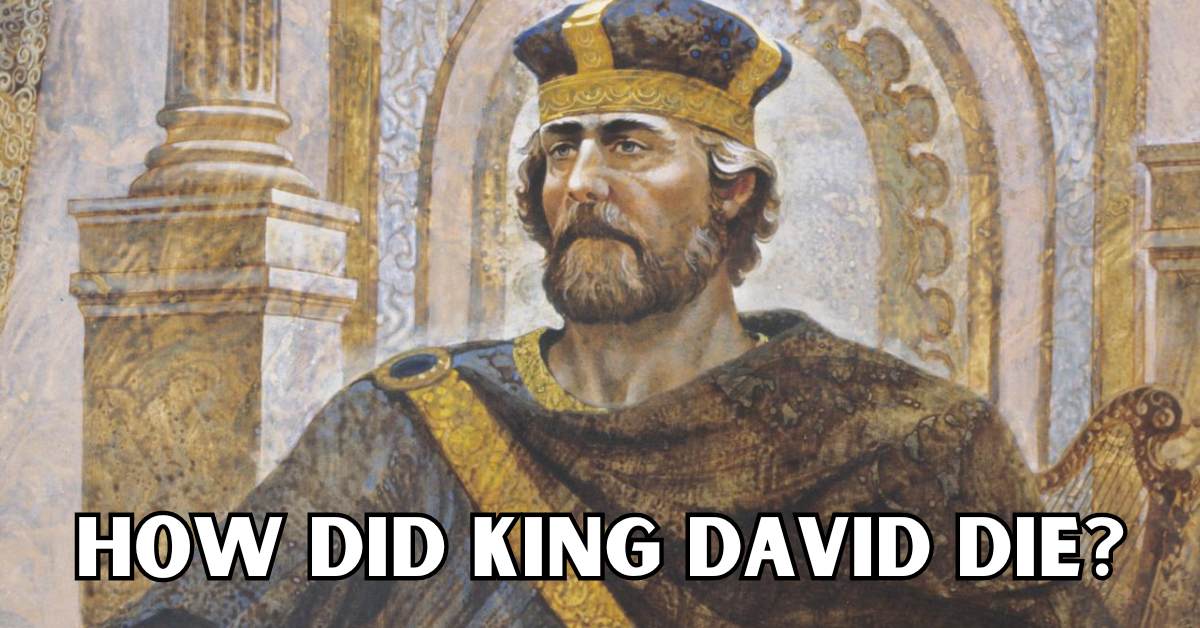In the tapestry of ancient history, few figures capture the imagination as vividly as King David of Israel. A central character in the Hebrew Bible, David’s life is a blend of heroic feats, poetic mastery, and complex personal relationships.
Yet, amidst his celebrated victories and tumultuous reign, one question that continues to intrigue scholars and enthusiasts alike is: How did King David die? This exploration delves into historical accounts, biblical narratives, and scholarly interpretations to uncover the enigmatic end of a legendary king.
The Life of King David: A Quick Recap
Before unraveling the mystery of his death, it’s essential to briefly revisit David’s life. Rising from humble beginnings as a shepherd boy, David gained fame by defeating Goliath, the Philistine giant, with just a sling and a stone. Anointed by the Prophet Samuel, he eventually succeeded Saul as the King of Israel.
His reign was marked by significant military conquests, the establishment of Jerusalem as the nation’s capital, and an enduring covenant with God. However, his life was also riddled with personal struggles, including family betrayals and moral failings.
The Biblical Account of David’s Death
The primary source for understanding David’s death is the Hebrew Bible, particularly in the Books of Kings and Chronicles. According to these texts, David died of natural causes at an advanced age, after reigning for 40 years. In his final days, depicted in 1 Kings 1-2, David is portrayed as frail and bedridden, a stark contrast to his earlier vigorous persona.
He provided counsel to his son Solomon, ensuring a smooth transition of power. This peaceful end is significant in biblical history, considering the often tumultuous and violent fates of other ancient rulers.
You might also be interested in reading some of our other articles:
- How Old Was Solomon When He Became King? The Age Riddle Solved!
- How Old Was Noah When He Built the Ark?
Scholarly Perspectives and Interpretations
Scholars analyzing the biblical narrative often point out the lack of detailed information about David’s death. While the Bible mentions his old age, it does not specify any particular illness. This has led to various hypotheses, ranging from natural decline due to age to specific ailments that might have afflicted the aged king.
Moreover, some scholars delve into the symbolism of David’s death. In the biblical context, dying peacefully in one’s bed was a sign of divine favor, a fitting end for a king who, despite his flaws, was considered “a man after God’s own heart.”
The Historical and Archaeological Angle
Moving beyond the biblical texts, historical and archaeological evidence offers limited information about David’s death. The historicity of King David himself was long debated until the discovery of the Tel Dan Stele, which references the “House of David.” However, this and other archaeological finds provide little insight into his final days. Thus, historians primarily rely on biblical accounts, interpreted in the broader context of ancient Near Eastern traditions and culture.
Conclusion: The Legacy of King David
In contemplating how King David died, we are reminded of the human aspect of this biblical hero. His death, devoid of the drama and violence that marked other parts of his life, brings a sense of closure to a journey filled with both triumphs and tribulations.
King David’s story, culminating in his peaceful death, continues to resonate through history, art, and religion. His life and death are not just ancient narratives but enduring symbols of leadership, faith, and the complexities of human nature. In exploring the question of his demise, we not only seek answers about the past but also reflect on the timeless themes that define our shared human experience.
While the exact circumstances of King David’s death might remain shrouded in the mists of history, the exploration of this topic is a testament to the enduring fascination with this legendary figure. His story, passed down through generations, remains a compelling part of our cultural and religious heritage, inviting us to keep exploring, questioning, and learning.
